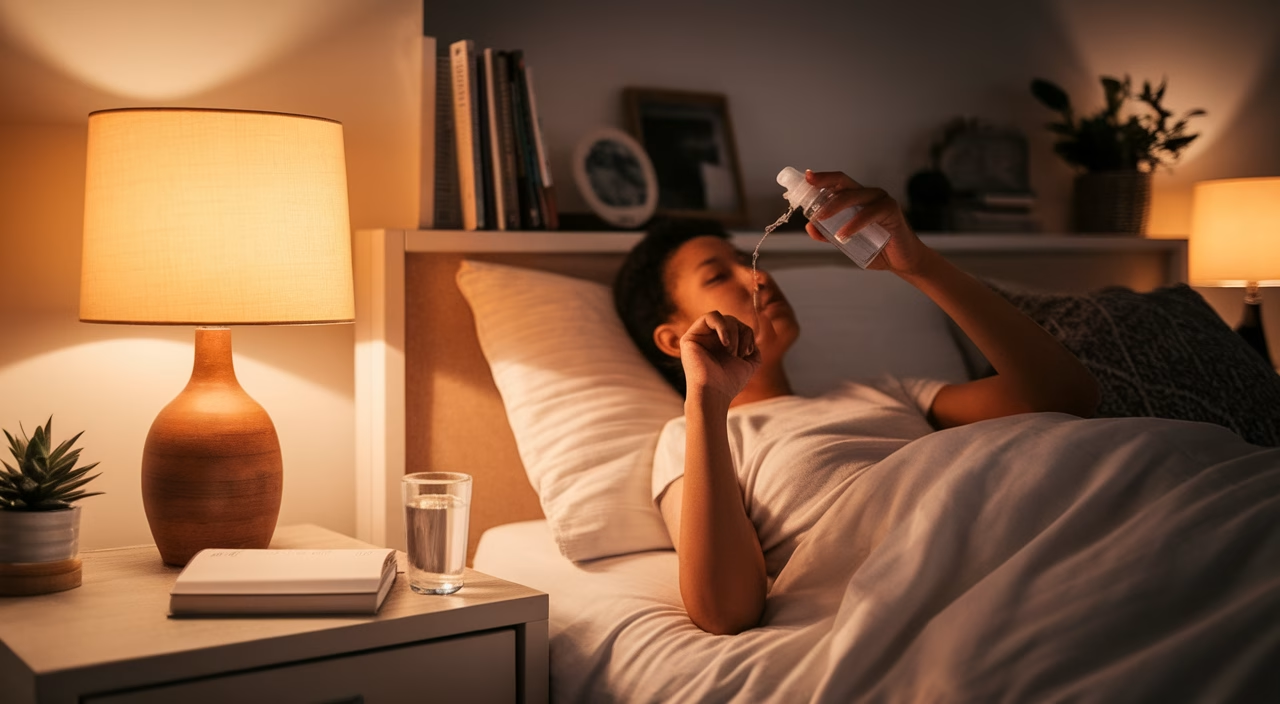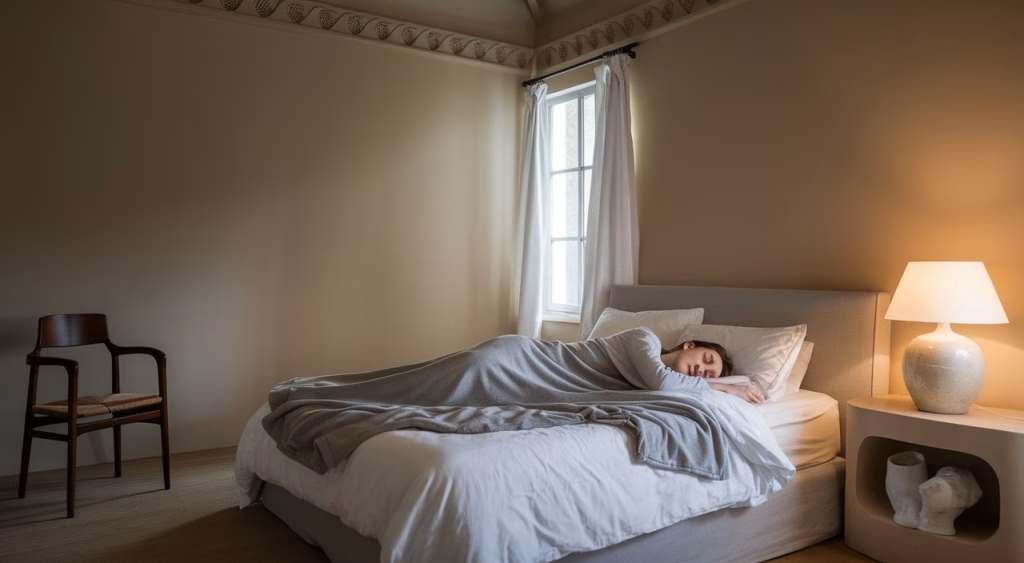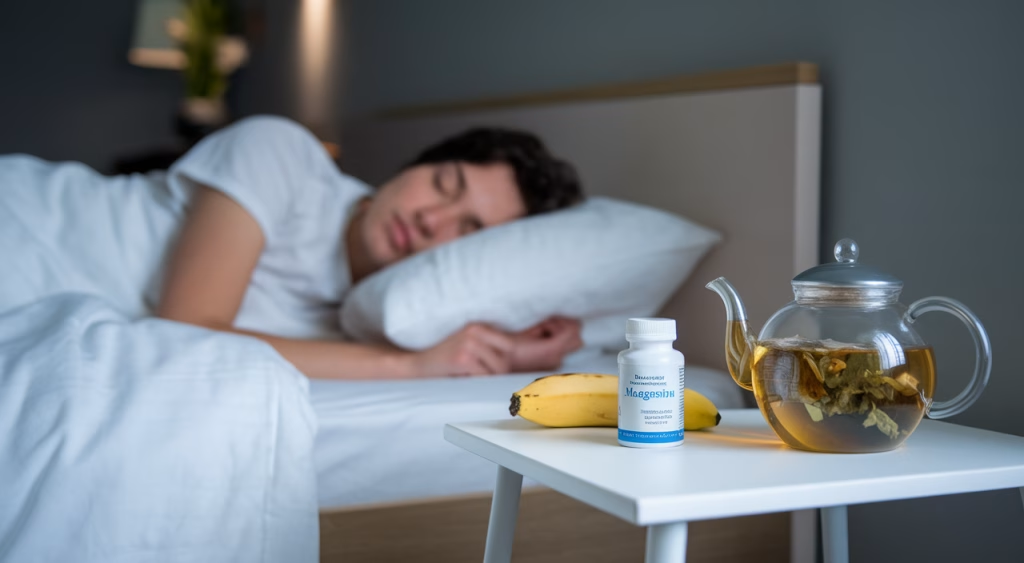What is the connection between nasal obstruction and sleep-disordered breathing?
Nasal obstruction and sleep-disordered breathing are intimately connected, creating a cascade of issues that can severely affect how well you breathe during sleep. When your nasal passages are blocked, it forces your body to breathe through your mouth, bypassing one of your best natural airflow filters and humidifiers. This disruption in nasal obstruction sleep-disordered breathing patterns can lead to conditions ranging from mild snoring to serious obstructive sleep apnea (OSA), significantly impairing your sleep quality and oxygen intake.
TL;DR Summary
- Nasal obstruction can lead to or worsen sleep-disordered breathing like snoring and sleep apnea.
- Many cases involve nasal congestion from allergies, inflammation, or anatomy issues.
- Increased airway resistance during sleep forces mouth breathing, often reducing sleep quality.
- Natural remedies, lifestyle changes, and clinical treatments can significantly reduce symptoms.
- This guide offers evidence-based strategies to help you breathe clearer and sleep better.
Understanding Nasal Obstruction and Sleep-Disordered Breathing
If you find yourself waking up tired despite 7–8 hours in bed, or your partner frequently nudges you to stop snoring, nasal obstruction may be the unseen culprit. In medical practice, we see countless patients frustrated by their unpredictable sleep. What’s often overlooked is how nasal airflow—something so basic—can degrade sleep when interrupted.
Nasal obstruction refers to any condition that impedes airflow through the nose. The impact of nasal obstruction on sleep quality stems from various causes, including:
- Deviated nasal septum
- Enlarged turbinates
- Chronic sinusitis
- Nasal polyps
- Allergic or non-allergic rhinitis
Even temporary causes—think common colds or seasonal allergies—can create breathing patterns that break healthy sleep rhythms. Blocked nasal passages increase airway resistance, shifting normal nasal breathing into mouth breathing, which can dry out your throat and disrupt oxygen regulation.
Exploring the Link Between Nasal Congestion and Snoring
Here’s a relatable scenario: You’re congested from allergies, and you suddenly find yourself snoring like a chainsaw. You didn’t have this problem last week. Why now?
The connection between nasal congestion and snoring is straightforward—when your nose is blocked, airflow causes vibration of tissues in the upper airway. Nasal congestion raises resistance, which shifts air pressure downstream into the throat, increasing these vibrations. According to sleep research, snoring is not just an annoyance—it’s often a warning sign of disrupted breathing architecture, which may lead to or indicate sleep-disordered breathing.
In simple terms: the nose likes to be in control. When it’s blocked, the mouth takes over—and that’s when things get noisy and your sleep quality suffers.
Unveiling the Impact of Nasal Obstruction on Sleep Apnea
What happens when your nasal passages aren’t just congested, but consistently obstructed? This is where the concern escalates from snoring to potential obstructive sleep apnea (OSA), a condition defined by repeated pauses in breathing during sleep.
Common sleep apnea causes connected to nasal obstruction include:
- Chronic inflammation narrowing the airway
- Deviated septum or structural deformities impeding airflow
- Tissue swelling decreasing overall airway size
In my clinical practice, patients with long-standing nasal breathing issues typically exhibit one or more risk markers for sleep apnea. Many of them return to nasal breathing and improved sleep quality simply by treating the obstruction—whether via medication, lifestyle modification, or surgical correction. Understanding these sleep apnea causes helps us target the most effective reduce snoring measures for each individual.
Practical Ways to Alleviate Snoring and Improve Sleep
Now for the part that truly matters to your nightly routine—solutions you can act on. Let’s look at effective reduce snoring measures and sleep disruption treatments.
Natural Remedies for Nasal Obstruction
- Steam Inhalation: A warm towel or hot shower can help open airways temporarily and reduce nasal obstruction.
- Saline Nasal Spray: Keeps nasal tissue moist and clears allergens or irritants—one of the most effective natural remedies for nasal obstruction.
- Sleeping Position: Elevate your head or sleep on your side to reduce airway collapse and improve nasal airflow.
- Essential Oils: Some oils like eucalyptus have shown mucolytic (mucus-breaking) effects in studies, helping with nasal congestion and snoring.
Medical and At-Home Snoring Solutions
- Allergy Management: Antihistamines or nasal corticosteroids can reduce inflammation and improve the impact of nasal obstruction on sleep quality.
- Breathing Strips: These open nasal passages mechanically—they work best short-term as part of your reduce snoring measures.
- Humidifiers: Keeping air humid prevents nasal tissues from drying and swelling, supporting better nasal obstruction sleep-disordered breathing patterns.
Lifestyle Changes for Better Sleep Quality
When it comes to lifestyle changes for reduced snoring, small tweaks often generate surprisingly large results:
- Weight Management: Excess tissue in the neck can narrow the upper airway and worsen sleep apnea causes.
- Reduce Alcohol Use: Alcohol relaxes throat muscles, worsening snoring and apneas—a key factor in nasal congestion and snoring patterns.
- Establish a Sleep Routine: A consistent sleep-wake cycle trains your body into deeper restfulness and better manages the impact of nasal obstruction on sleep quality.
- Stop Smoking: Smoking irritates and inflames airways, contributing to blockage and interfering with natural remedies for nasal obstruction.
Cost Guide: Treatment Options for Nasal Obstruction
| Option | Price Range | Notes |
|---|---|---|
| Saline & OTC sprays | $5–$20 | Good for short-term symptom relief |
| Allergy Medications | $15–$50/month | Required if allergies are chronic |
| Breathing Aids (strips, cones) | $8–$30 | Useful adjunct for positioning |
| Consultation & ENT Evaluation | $150–$300 | Necessary for persistent obstructions |
| Nasal Surgery (Septoplasty, Turbinate Reduction) | $1,500–$6,000 | Often covered by insurance if medically necessary |
Final Thought: Breathe Easier, Sleep Deeper
When patients realize that their persistent tiredness, snoring, or even cognitive fog stems from something as simple—and fixable—as nasal obstruction, it can be life-changing. Addressing nasal obstruction and sleep-disordered breathing isn’t just about quieting your snoring; it’s about restoring the natural rhythm of your sleep and waking life.
Whether you explore natural remedies for nasal obstruction, make intentional lifestyle changes for reduced snoring, or consult with a medical professional for long-term solutions, improving nasal airflow is a sound investment in your health. Understanding the sleep apnea causes and implementing effective reduce snoring measures can dramatically improve the impact of nasal obstruction on sleep quality. Sleep is one of the purest forms of healing. Let’s make sure you’re giving your body its best shot.
Frequently Asked Questions
- Does nasal congestion lead to snoring?
Yes, nasal congestion increases airway resistance, pushing airflow into the throat and causing tissue vibrations—resulting in snoring. - Can blocked nasal airways cause sleep apnea?
They can contribute to or worsen existing sleep apnea by reducing airway space and forcing mouth breathing while asleep. - What are the best natural remedies for nasal obstruction?
Steam inhalation, saline spray, side sleeping, and essential oils are effective natural remedies for mild to moderate congestion. - Is surgery the only fix for chronic nasal obstruction?
Not always. Many cases respond to medication or structural adjustments; surgery is reserved for severe or unresponsive cases. - How can I improve sleep quality naturally?
Improve nasal airflow, stick to a consistent routine, avoid alcohol before bed, and maintain a clean sleep environment.





